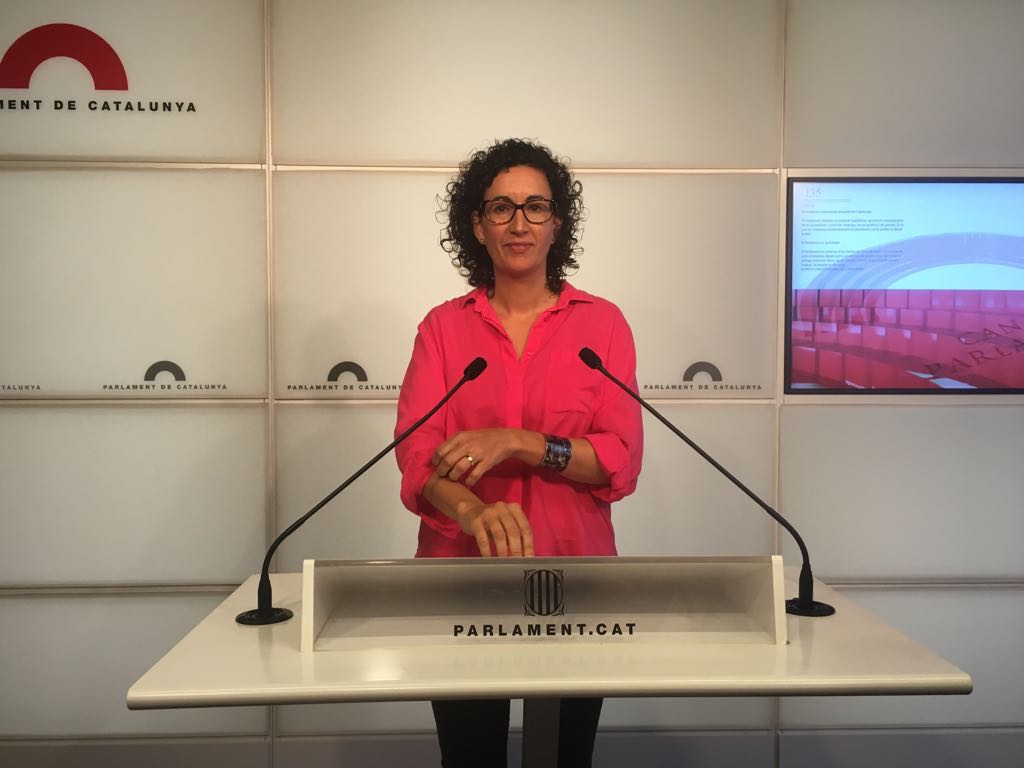Facing the “insistent threats” from the Spanish Government, the independence movement will defend the fundamental rights of the Catalan people and the international law that protects them. This was the announcement today from Marta Rovira, parliamentary spokesperson for the governing Junts pel Sí (JxSí, Together for Yes) in reference to the debate on the proposed Referendum Law, which is expected to be passed by the Catalan Parliament's plenary assembly this Wednesday. “The debate in the Parliament cannot be prevented, there is no way to prevent it,” said Rovira. They will use “all the democratic mechanisms”, even the “judicial” ones, in their power.
“It is very clear to us: we know that voting is not a crime”, said Rovira, who warned that “what indeed could be illegal and a crime” it is to prevent parliamentary debate and “to restrict the work of the deputies”. In the dilemma between defending the right to vote or not, she made it clear, they will have “no doubt”.
Rovira, also the general secretary of ERC (Catalan Republican Left, part of the JxSí coalition) declared that any attempt to block "free debate" would imply "a direct attack on our institutions". That said, she didn't confirm whether she suspected that someone would try to block parliamentary debate, though advised that if they did they would protect themselves with "international treaties and the general principles of rights". She referred to rights like the right to political representation, freedom of speech and right to self-determination.
According to the JxSí spokesperson, the Spanish State cannot “ignore” all these fundamental rights protected by international law, which it's "bound" to, but has to "respect” them. If they try to "attack" these rights, Rovira added, "we will make it as difficult as possible for them". She said that they will use "all the democratic mechanisms to defend it".
They will accept amendments
After the Board of the Catalan Parliament met this Tuesday and again postponed processing the planned "disconnection" laws, Rovira didn't want to discuss the plans of the pro-independence majority, nor confirm whether an extraordinary Board meeting would be held to process the Referendum Law.
She did show herself to be open to possible changes or amendments to the Referendum Law. They will evaluate the possibility once the law is under debate. “It doesn't occur to us that there wouldn't be this possibility,” she said. Without going further, Podemos (We Can) has shown itself ready to vote in favour of the law, if certain amendments are accepted. They're also open to amendments to the Law of Transitional Jurisprudence.

